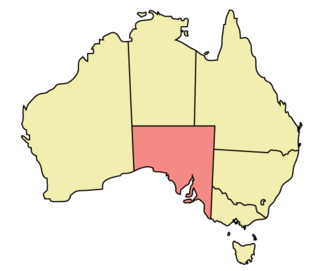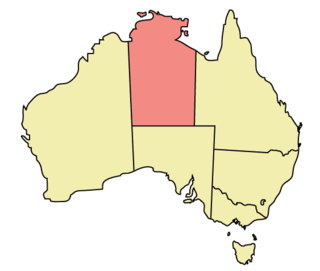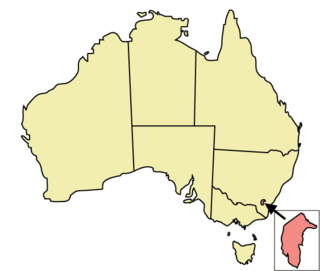
A civil union is a legally recognized arrangement similar to marriage, created primarily as a means to provide recognition in law for same-sex couples. Civil unions grant some or all of the rights of marriage.
Civil partnership in the United Kingdom is a form of civil union between couples open to both same-sex couples and opposite-sex couples. It was introduced via the Civil Partnership Act 2004 by the Labour government. The Act initially permitted only same-sex couples to form civil partnerships, but the law was expanded to include opposite-sex couples in 2019.
This article contains a timeline of significant events regarding same-sex marriage and legal recognition of same-sex couples worldwide. It begins with the history of same-sex unions during ancient times, which consisted of unions ranging from informal and temporary relationships to highly ritualized unions, and continues to modern-day state-recognized same-sex marriage. Events concerning same-sex marriages becoming legal in a country or in a country's state are listed in bold.

The Marriage Act 1961(Cth) is an Act of the Parliament of Australia which regulates marriage in Australia. Since its passage in 1961, it has been amended on numerous occasions and applies uniformly throughout Australia (including its external territories); and any law made by a state or territory inconsistent with the Act is invalid. The Act was made pursuant to power granted to the federal parliament under s.51(xxi) of the Australian Constitution. Although the federal parliament was given the power to pass laws about marriage at federation in 1901, it did not use this power until the adoption of the Act, while before 1961, each Australian state and territory had its own marriage laws.
Same-sex marriage has been legal in New Zealand since 19 August 2013. A bill for legalisation was passed by the House of Representatives on 17 April 2013 by 77 votes to 44 and received royal assent on 19 April. It entered into force on 19 August, to allow time for the Department of Internal Affairs to make the necessary changes for marriage licensing and related documentation. New Zealand became the first country in Oceania, the fourth in the Southern Hemisphere, and the fifteenth overall to allow same-sex couples to marry. Civil unions have also been available for both same-sex and opposite-sex couples since 2005.

Lesbian, gay, bisexual and transgender (LGBT) rights in Australia have advanced over the latter half of the twentieth century and early twenty-first century to make Australia one of the most LGBT-accepting countries in the world, with opinion polls and the Australian Marriage Law Postal Survey indicating widespread popular support for same-sex marriage. A 2013 Pew Research poll found that 79% of Australians agreed that homosexuality should be accepted by society, making it the fifth-most supportive country surveyed in the world. With its long history of LGBT activism and annual Gay and Lesbian Mardi Gras festival, Sydney has been named one of the most gay-friendly cities in the world.
The legal status of same-sex marriage has changed in recent years in numerous jurisdictions around the world. The current trends and consensus of political authorities and religions throughout the world are summarized in this article.
Same-sex marriage has been legal in Australia since 9 December 2017. Legislation to allow it, the Marriage Amendment Act 2017, passed the Australian Parliament on 7 December 2017 and received royal assent from Governor-General Peter Cosgrove the following day. The law came into effect on 9 December, immediately recognising overseas same-sex marriages. The first same-sex wedding under Australian law was held on 15 December 2017. The passage of the law followed a voluntary postal survey of all Australians, in which 61.6% of respondents supported legalisation of same-sex marriage.
Tasmania's Relationships Act 2003 provided for registration and recognition of a type of registered partnership in two distinct categories: Significant Relationships and Caring Relationships. The same Act also amended 73 pieces of legislation to provide registered partners with nearly all of the rights offered to married couples within the state. Furthermore, since July 2009, these relationships are recognised at federal level, providing couples with almost all of the federal rights and benefits of marriage. The legislation came into effect on 1 January 2004. In September 2010, the Parliament of Tasmania approved legislation to recognize same-sex unions performed outside Tasmania as significant relationships.

Lesbian, gay, bisexual and transgender (LGBT) rights have evolved significantly in the past decades in the British Overseas Territory of Gibraltar. Same-sex sexual activity has been legal since 1993 and the age of consent was equalised to 16 in 2012. The Supreme Court of Gibraltar ruled in April 2013 that same-sex couples have the right to adopt. Civil partnerships have been available to both same-sex and opposite-sex couples since March 2014, and in October 2016, Gibraltar voted to legalise same-sex marriage with the Civil Marriage Amendment Act 2016 passing unanimously in Parliament. The law received royal assent on 1 November and took effect on 15 December 2016.
This is a list of notable events in the history of LGBT rights that took place in the year 2008.

Lesbian, gay, bisexual, and transgender (LGBT) rights in Queensland have advanced significantly from the late 20th century onwards, in line with progress on LGBT rights in Australia nationally. Private consensual sex between men has been legal in the state since 1991, with lesbian sexual acts never criminalised. The age of consent was equalised to 16 years for all sexual acts in 2016. Sexuality and gender identity are protected attributes under both state and federal anti-discrimination laws. Same-sex couples may marry under Australian law, enter into a civil partnership under state law or live together in an unregistered de facto relationship. Same-sex couples may become parents through adoption, foster care, altruistic surrogacy and, for lesbian couples, IVF. In 2020, Queensland became the first jurisdiction within Australia to pass a law banning conversion therapy, with a maximum penalty of 18 months imprisonment and fines. State anti-discrimination protections for sexuality and gender identity were introduced in 2002 and in 2017 the gay panic defence was abolished from the criminal law. Transgender and intersex Queenslanders are able to update their government records and birth certificate, with the formal repeal of both the "divorce requirements" in 2018 and then the "surgery requirements" in 2023.

The rights of lesbian, gay, bisexual, and transgender (LGBT) people in the Australian state of South Australia are advanced and well-established. South Australia has had a chequered history with respect to the rights of LGBT people. Initially, the state was a national pioneer of LGBT rights in Australia, being the first in the country to decriminalise homosexuality and to introduce a non-discriminatory age of consent for all sexual activity. Subsequently, the state fell behind other Australian jurisdictions in areas including relationship recognition and parenting, with the most recent law reforms regarding the recognition of same-sex relationships, LGBT adoption and strengthened anti-discrimination laws passed in 2016 and went into effect in 2017.

This article details the history of the LGBT rights movement in Australia, from the colonial era to the present day.

The Marriage Equality Act 2013 was an act of parliament of the Australian Capital Territory Legislative Assembly that was intended to legalise same-sex marriage in the Australian Capital Territory (ACT). It was first presented to the ACT Legislative Assembly on 19 September 2013 by the ACT Attorney-General, Simon Corbell. The law intended to build on the existing recognition of same-sex unions in the Australian Capital Territory, which included recognition of de facto partners, civil partnerships and same-sex-only civil unions. The act was passed in the Legislative Assembly on 22 October 2013. It came into operation on 7 November although wedding ceremonies under the provisions of the Act did not occur until 7 December 2013.

Lesbian, gay, bisexual and transgender (LGBT) rights in Western Australia have seen significant progress since the beginning of the 21st century, with male sex acts legal since 1990 and the state parliament passing comprehensive law reforms in 2002. The state decriminalised male homosexual acts in 1990 and was the first to grant full adoption rights to LGBT couples in 2002.

Lesbian, gay, bisexual, and transgender (LGBT) persons in Australia's Northern Territory enjoy the same legal rights as non-LGBT residents. The liberalisation of the rights of lesbian, gay, bisexual and transgender (LGBT) people in Australia's Northern Territory has been a gradual process. Homosexual activity was legalised in 1983, with an equal age of consent since 2003. Same-sex couples are recognised as de facto relationships. There was no local civil union or domestic partnership registration scheme before the introduction of nationwide same-sex marriage in December 2017, following the passage of the Marriage Amendment Act 2017 by the Australian Parliament. The 2017 Australian Marriage Law Postal Survey, designed to gauge public support for same-sex marriage in Australia, returned a 60.6% "Yes" response in the territory. LGBT people are protected from discrimination by both territory and federal law, though the territory's hate crime law does not cover sexual orientation or gender identity. The territory was the last jurisdiction in Australia to legally allow same-sex couples to adopt children.

The Australian Capital Territory (ACT) is one of Australia's leading jurisdictions with respect to the rights of lesbian, gay, bisexual, transgender, queer and intersex (LGBTQI) people. The ACT has made a number of reforms to territory law designed to prevent discrimination of LGBT people; it was the only state or territory jurisdiction in Australia to pass a law for same-sex marriage, which was later overturned by the High Court of Australia. The Australian Capital Territory, Victoria and Queensland are the only jurisdictions within Australia to legally ban conversion therapy on children. The ACT's laws also apply to the smaller Jervis Bay Territory.
The history of same-sex marriage in Australia includes its express prohibition by the Howard government in 2004 and its eventual legalisation by the Parliament in December 2017. Although a same-sex marriage law was passed by the Australian Capital Territory in 2013, it was struck down by the High Court on the basis of inconsistency with federal law. The Court's decision closed the possibility of concurrent state or territory laws that would allow same-sex marriage where federal law did not. A law legalising same-sex marriage passed the Parliament on 7 December 2017 and received royal assent the following day.
Same-sex marriage is currently not recognised in the Cayman Islands. The island's statutory law limits marriage to different-sex couples. A lawsuit with the Grand Court successfully challenged this ban in March 2019; however, the Court of Appeal overturned the ruling in November 2019. Same-sex civil partnerships are legal following the enactment of the Civil Partnership Law, 2020 on 4 September 2020.











